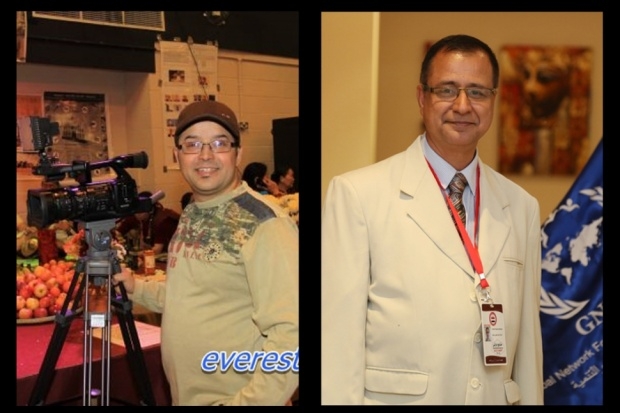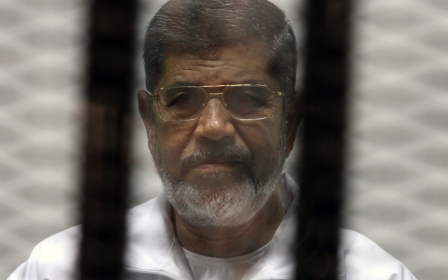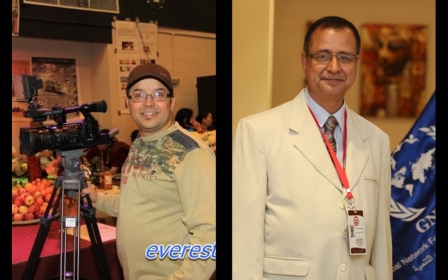British human rights researchers held in Qatar released

Two British-Nepalese human rights researchers held in custody in Qatar have been released.
Krisna Upadhyaya and Gundev Ghimire, researchers for the Global Network for Rights and Development, were released early on Tuesday morning
“They were released at 12:30am,” Upadhyaya’s wife told Gulf News.
“He called me and said he had been let go and then updated his Facebook to inform his friends. We’re so relieved because you never know what can happen in these situations.”
“They are staying at [a hotel] in Doha and said they’ll be home in two days time but didn’t confirm a date and time,” she added.
The two men were due to fly to Norway on 1 September but never arrived at the airport after checking out of their hotel in Doha.
The two men are British citizens of Nepalese origin who were in Qatar investigating human rights abuses against migrant workers.
GNRD said the men were legitimately assessing the working conditions of Nepalese workers in the Gulf State.
“They were engaging with authorities in a formal manner to see if any improvements had been made to working conditions. Another aim was to interview the Nepalese migrant workers inside their embassy,” said Evgenia Kondrakhina, chief executive of the GNRD, an organisation registered in Norway that claims to be a neutral human rights group, but questions have been raised about the group's connections to the UAE with one Emirati human rights activist claiming the organisation is a front for the United Arab Emirates.
Qatar has been heavily criticised for the “slave-like” conditions migrant workers are subjected to amid intense construction projects for the 2022 FIFA World Cup. Nearly a thousand workers died while working in the Gulf State during 2012 and 2013.
The GNRD index currently ranks the UAE 12th in the world for its human rights record, two places ahead of the UK, seven places ahead of Germany and nine in front of France.
When asked about the validity of their index, Kondrakhina said a meticulous process was in place to ensure its accuracy.
“The human rights index is based on reports from several sources including from the UN and our volunteers,” she said. “Experts then evaluate all the reports and calculate the level of human rights giving our index. It’s a mixture of technical procedures and expert reports.”
The UN’s human rights reports on the UAE, however, have been less than favourable in recent times. Earlier this year, the international body said it had found “credible evidence” of political prisoners being tortured and called into question the country’s judicial independence.
The UAE rejected the UN report and said it was part of a “politically motivated” campaign to tarnish its international image.
Middle East Eye propose une couverture et une analyse indépendantes et incomparables du Moyen-Orient, de l’Afrique du Nord et d’autres régions du monde. Pour en savoir plus sur la reprise de ce contenu et les frais qui s’appliquent, veuillez remplir ce formulaire [en anglais]. Pour en savoir plus sur MEE, cliquez ici [en anglais].



